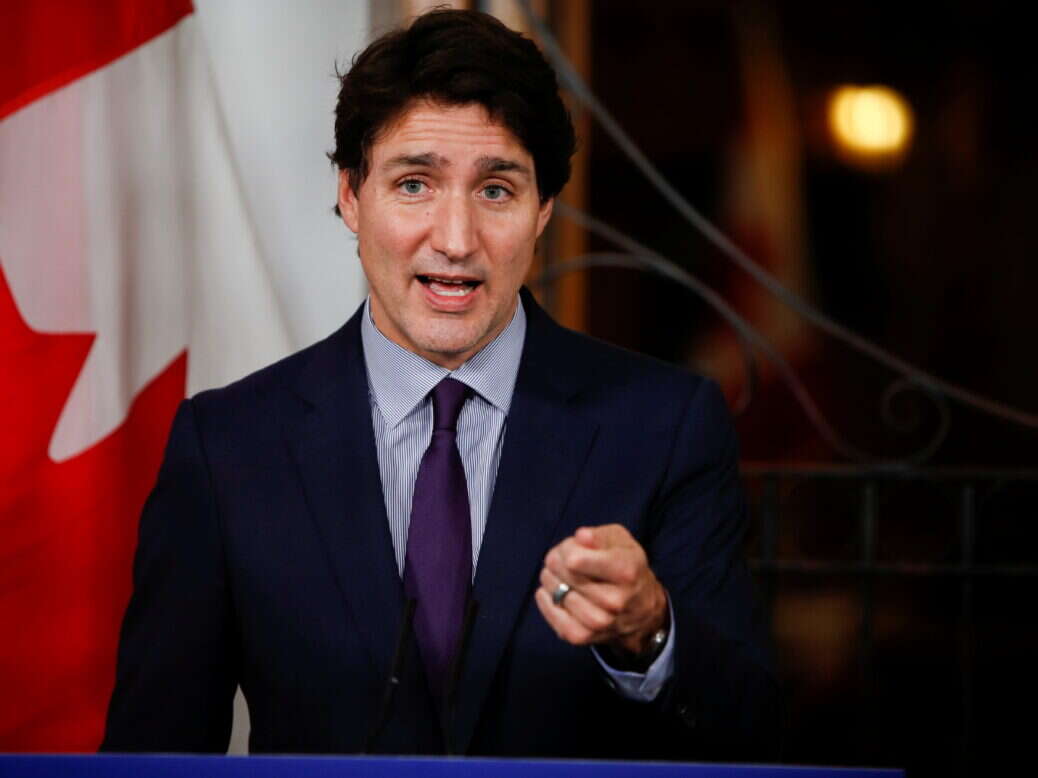
The Canadian government has introduced a bill to bring an Australia-style news media bargaining code into law in the country.
The Online News Act will require “digital news intermediaries” to negotiate with news publishers for use of their content.
Unlike in Australia, Canada’s bill hands the job of designating platforms and news publishers from the government to the country’s telecoms commission.
The commission will be tasked with keeping public lists of designated tech platforms and designated news outlets.
Eligibility criteria for news outlets appears to exclude specialist titles.
And they leave open the controversial question of whether publicly-funded broadcasters can benefit from the big tech windfall.
The draft law, formally titled Bill C-18, was introduced into Canada’s parliament on Tuesday.
Should it pass, the news bargaining code is expected to cover at least 30% of Canadian newsroom costs – likely upward of $100m (£76m) a year.
This is because the bill requires any recognised tech platform to negotiate with any recognised news outlet that asks to bargain for pay for its content.
Should independent bargaining efforts fail, the bill compels the platforms to enter into mediation with the publishers and, should that too fall through, arbitration.
Independent arbitration panellists will be required to choose a final offer made by one of the parties taking into account “the value added, monetary and otherwise, to the news content” and rejecting any offer that “is not in the public interest” or is “inconsistent with the purposes of enhancing fairness in the Canadian digital news marketplace”.
Designation will be handled by the Canadian Radio-television and Telecommunications Commission, which will also have to keep a public list of designated news providers and designated platforms on its website.
The Act describes an eligible news provider as either a “qualified Canadian journalism organisation” under the country’s Income Tax Act, or one that produces “news content that is primarily focused on matters of general interest”, employs at least two journalists, and reports news “that is not primarily focused on a particular topic such as industry-specific news, sports, recreation, arts, lifestyle or entertainment”.
It is unclear whether trade news, sport or cultural publications would be eligible to bargain with the tech platforms under the definition.
Prior to the bill’s publication, there was suggestion that the inclusion of broadcasters among eligible publishers for the code might mean CBC, Canada’s public broadcaster, will get Google and Facebook money despite being publicly funded.
A senior source at a major Canadian publisher told Press Gazette in March: “This would be a divisive issue… If payments from Google and Facebook are based on a percentage of newsroom costs, CBC has the largest newsroom in Canada and therefore, on that basis, would get the most money.”
As published, the bill appears to leave that question for another day, saying: “The designation of a public broadcaster as an eligible news business is subject to any other conditions specified in regulations made by the Governor in Council.”
Like the proposed Journalism Competition and Preservation Act (JCPA) in the US, Canada’s Online News Act contains specific exemptions allowing publishers to club together to negotiate prices with big tech despite the country’s antitrust Competition Act.
Australia’s news media bargaining code, the world’s first, entered into law in February 2021 despite Facebook and Google’s threats to pull services in the country.
Several major Australian publishers have since signed deals with the tech giants.
But the country’s federal treasurer has stopped short of formally designating Facebook or Google as platforms, meaning they cannot yet be compelled to bargain.
This has left some smaller outlets saying they’ve been left short-changed.
Canadian prime minister Justin Trudeau (pictured) pledged on the campaign trail in September last year that he would introduce similar legislation within 100 days of his cabinet’s swearing in. (It has taken 161.)
Paul Deegan, the head of trade group News Media Canada, asked parliamentarians in February to ensure the code had received royal assent by the end of June.
[Read more: ‘Oh, yeah. It’s a big deal’ – Meet the man who forced Google and Meta to start paying for news]
Picture: Reuters/Kevin Light
Email pged@pressgazette.co.uk to point out mistakes, provide story tips or send in a letter for publication on our "Letters Page" blog
